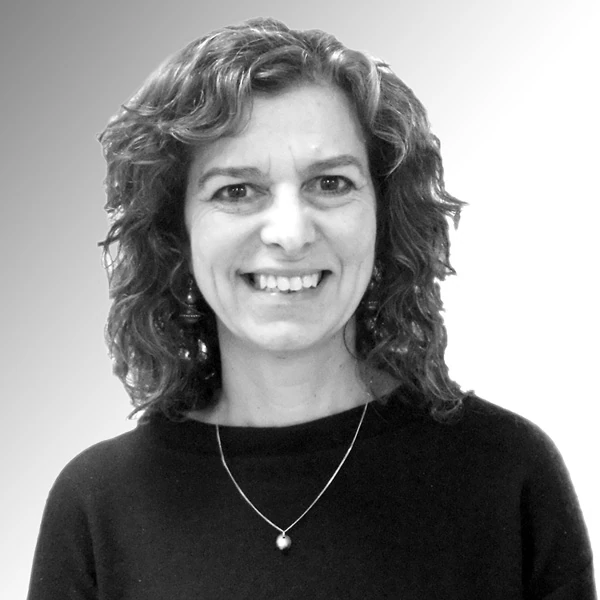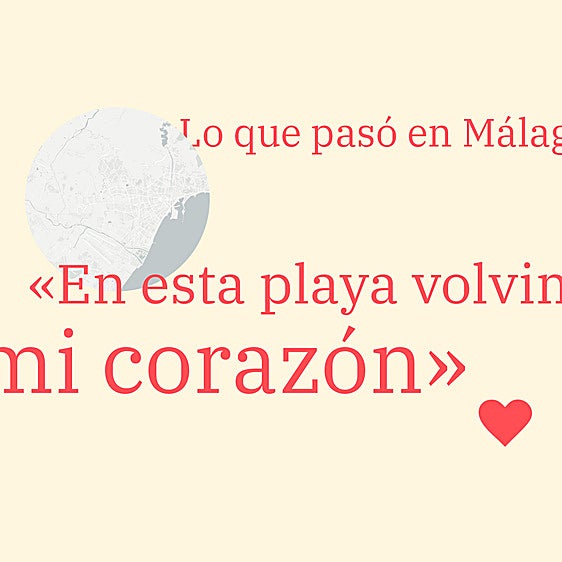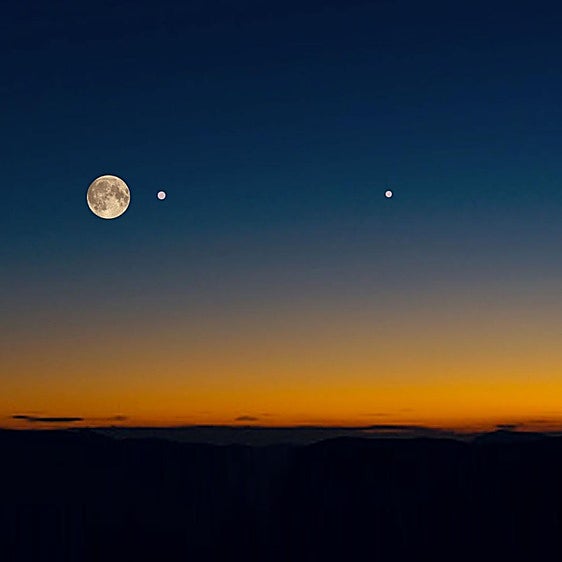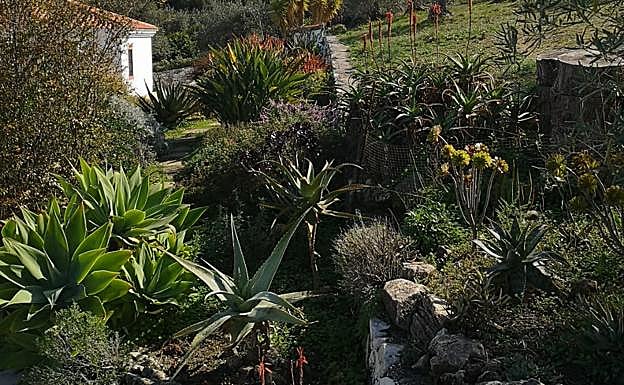A gardener with a passion for succulents
Mediterranean ·
Andrew Sloan has created an outstanding garden using a wide variety of drought-resistant succulents and cactiManaging to create a flourishing garden in the Mediterranean climate can be a challenge, especially in times of drought such as now. However Andrew Sloan, a former financial executive now living in Alhaurín el Grande, has done just that.
His passion is for succulents of all types and sizes although, as he admits himself, it wasn't always so.
When he and his Spanish wife Margarita bought a 10,000-square-metre plot of land to build a house twenty-six years ago, their initial plans were to plant borders filled with lush herbaceous plants but the hours spent watering during the summer became excessive. He described himself back then as a 'passive' gardener; the gardening bug hadn't quite bitten him yet.
Andrew has lived abroad most of his adult life and has travelled extensively with his job. It was on a visit to Israel in 2011 that he saw what could be achieved in a garden in a country where the temperature frequently reaches 50ºC.
He brought back lots of ideas and a few Aloe seeds from Jerusalem Botanical gardens and started to research the succulents and cacti that he had seen growing there. This was followed by scouring seed catalogues to find the plants he wanted.
Joining the Mediterranean Garden Society put him in contact with others striving to create the perfect Mediterranean garden and also opened up the possibility of seed and cuttings exchanges.
He says that whenever he goes to the post office and there's a parcel for him, "it feels like Christmas" and he can't wait to get home and find out what new plant he has been sent.
Andrew was once a keen golfer but that has taken a back seat now that the passion for collecting plants has taken over.
Careful nurturing
For optimal germination results, he has developed his own compost mix and has myriad tiny pots with even tinier seedlings. He nurtures them in the protection of his car port where he carefully mists them with a fine spray everyday. In this way he has raised hundreds of plants with which to keep his beautiful garden stocked and to share with visitors. A group from U3A and I were recently invited by Andrew Sloan to see his garden and we were able to choose from a large selection of plants he had prepared for us to take home.
Walking in the front gate you are met by a vista of colour and textures. It is probably the tall Aloes, of which he has 133 named species, many grown from seed from South Africa, that make the initial impact. They were in flower and haloed with bees when we visited and were stunning.
The bigger Agaves also make a statement; one had sent up a thick, solid flower stem, like a huge piece of asparagus, with promising, tightly bunched flower buds.
Closer inspection of the raised beds, revealed some of the smallest succulents and cacti I have ever seen, growing close to the front edge and surrounded by pebbles which "help to keep the roots cool in the summer," Andrew explained.
The patio area around the house is adorned with pots of Sedums, Kalanchoes, Aloes, Agaves, Aeoniums, Crassulas... just about every type of succulent you could imagine.
Andrew also showed us around his large plot of land which has some very, very old olive trees, some dating back to Moorish times. He showed the group one in particular, which was about 800 years old, and at some point in its life, had been cut right back and a more modern variety of olive grafted onto the trunk. Over time the old variety grew back and now he harvests both types of olives from one tree.
He also has a vegetable plot where, at the moment he has onions, garlic and cabbages as well as some soft fruit, which he has for years maintained by the phases of the moon.
On one of his trips to Africa, he visited Tanzania and found an orphanage near Lake Manyara run by an elderly lady. Now he does what he can to help them build a school there by exchanging cuttings as well as seeds and seedlings for donations to the orphanage.




